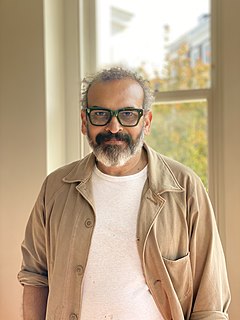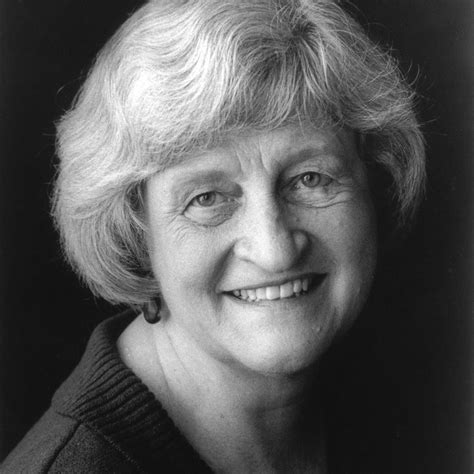A Quote by Diane Ackerman
If we mammals don't get something to eat every day or two, our temperature drops, all our signs fall off, and we begin to starve. Living at biological red alert, it's not surprising how obsessed we are with food; I'm just amazed we don't pace and fret about it all the time.
Related Quotes
Our relationship with food - how, when, what and why we eat - is a direct expression of our underlying feelings, thoughts and beliefs about ourselves. It has to do with stances we take that get reflected not only in our relationship with food, but in all our relationships. It just so happens that the relationship with food causes enough conflict, grief, shame and hurt that we’re willing to look at it.
It is now generally accepted that the roots of our ethics lie in patterns of behavior that evolved among our pre-human ancestors, the social mammals and that we retain within our biological nature elements of these evolved responses. We have learned considerably more about this responses, and we are beginning to to understand how they interact with our capacity to reason.
According to energy medicine, we are all living history books. Our bodies contain our histories- every chapter, line and verse of every event and relationship in our lives. As our lives unfold, our biological health becomes a living, breathing biographical statement that conveys our strengths, weaknesses, hopes and fears.
Some kids have never seen what a real tomato looks like off the vine. They don't know where a cucumber comes from. And that really affects the way they view food. So a garden helps them really get their hands dirty, literally, and understand the whole process of where their food comes from. And I wanted them to see just how challenging and rewarding it is to grow your own food, so that they would better understand what our farmers are doing every single day across this country and have an appreciation for ... that American tradition of growing our own food and feeding ourselves.
There is more and more data that the biological molecules of aging are more under the influence of psychological factors than the chronological age that we usually associate with. Of course there are other things that influence our aging process, including how we perceive time. If you're constantly running out of time, then your biological clock speeds up, and you do run out of time with a heart attack or something like that. The quality of our self-esteem determines how we age. Our perception of our bodies as fields of energy or fields of matter influence how our body ages.
Food is "everyday"-it has to be, or we would not survive for long. But food is never just something to eat. It is something to find or hunt or cultivate first of all; for most of human history we have spent a much longer portion of our lives worrying about food, and plotting, working, and fighting to obtain it, than we have in any other pursuit. As soon as we can count on a food supply (and so take food for granted), and not a moment sooner, we start to civilize ourselves.
I once hosted a dinner party where I had two guests with some serious food restrictions - one was vegan and the other didn't eat red meat... steak and fish were our dinner. Now I always serve family style with a variety of food groups - so there is something for everyone. Always ask your guests if they have any allergies.
Those of us who think about what we eat, how it's grown, those of us who care about the environmental impact of food - we've been educated by fabulous books, like Fast Food Nation and documentaries like Food Inc. But despite these and other great projects that shine a critical light on the topic, every year the food industry spends literally tens of millions of dollars to shape the public conversation about our food system.
Our tissues change as we live: the food we eat and the air we breathe become flesh of our flesh and bone of our bone, and the momentary elements of our flesh and bone pass out of our body every day with our excreta. We are but whirlpools in a river of ever-flowing water. We are not stuff that abides, but patterns that perpetuate themselves






































